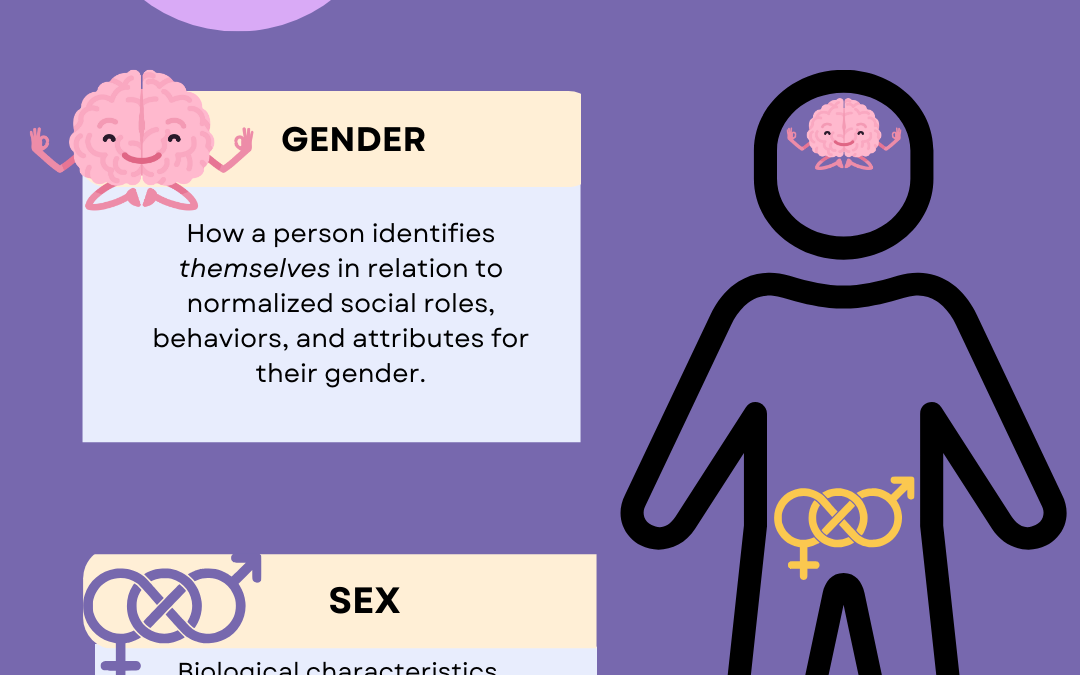
Gender Jargon – List of Terms to Know
2TIGE – Two-Spirit, Trans, Intersex and Gender-Expansive
2TIGE-BIPOC – Two-Spirit, Trans, Intersex and Gender-Expansive Black and Indigenous People of Color
Agender – Lacking gender; included in the definitions of non-binary because it falls outside of the binary gender system.
Assigned Male At Birth (AMAB)/ Assigned Female At Birth (AFAB)- Someone who was assigned a gender at birth but identifies with the opposite gender
Assigned Sex – The determination of a person’s sex based on the visual appearance of genitals at birth.
Bigender- Someone who experiences two specific genders at the same time or separately and are not limited to the binary.
Cisgender – A person’s gender identity corresponds with their assigned sex at birth.
Expression- is the external appearance of one’s gender identity, usually expressed through behavior, clothing, body characteristics, or voice, which may or may not conform to socially defined behaviors and characteristics typically associated with being either feminine or masculine.
Gender Expansive – Gender expansive refers to individuals whose gender identity, expression, or experience falls outside the traditional binary understanding of male or female. This term embraces a wide range of gender diversity, recognizing that people may identify as a combination of genders, no gender, or a gender different from the one assigned at birth.
Gender Expression- is the external appearance of one’s gender identity, usually expressed through behavior, clothing body characteristics, or voice, which may or may not conform to socially defined behaviors and characteristics typically associated with being either feminine or masculine.
Gender Spectrum –The gender spectrum refers to the understanding that gender is not limited to a strict binary of male and female, but rather exists as a broad range of identities and expressions. This concept recognizes that gender can be fluid and multifaceted, allowing individuals to experience, identify with, and express their gender in ways that go beyond traditional categories. The gender spectrum embraces the diversity of gender experiences, affirming that all gender identities are valid and deserving of respect.
Genderfluid- Someone whose gender identity and/or expression that fluctuates over time.
Intersex- Someone who has genitals, chromosomes, or reproductive organs that do not fit within the rigid definitions typically assigned as female or male in the binary system.
Non-Binary– Someone who does not exclusively identify as male or female.
Sexual Orientation- a person’s feelings of attraction ( emotional, psychological, sexual and/or physical) towards other people.
Trans / Transgender -It is an umbrella term for individuals who identify differently than the sex they were assigned at birth
Two-Spirit- Two Spirit is a term used by some Indigenous cultures in North America to describe individuals who embody both masculine and feminine qualities, or who occupy a unique gender role within their community. It is a sacred, spiritual identity that goes beyond Western understandings of gender and sexuality. Two Spirit people often hold special roles as healers, mediators, or keepers of tradition. The term is specific to Indigenous peoples and cannot be separated from its cultural and historical context. While similar to modern concepts of gender diversity, Two Spirit is deeply rooted in Indigenous worldviews and traditions.

